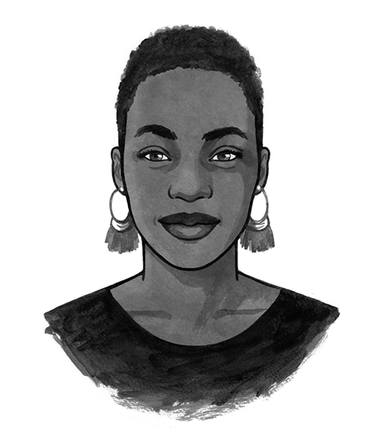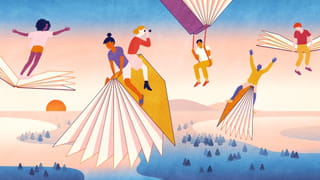One of my biggest complaints about life is that living gets in the way of reading. There’s so much great literature, but so little time alive to read it in! To help me cope with the finitude of Book Reading Time, I have a simple guideline that determines which books I read: I prioritise literature that is produced from the margins.
This guideline has spilled over into how I’ve run our transnational book club, but this month, it occurred to me to take the Other Shelf in a different direction. Since the book club launched, I’ve used the selection process as a way to dig deeper into ideas I’m already interested in, and to introduce underrated literary giants to members. Books aren’t neutral, and many of the social forces that shape our lives also determine whose ideas end up in our hands or whose names we know for the outstanding literary work they’ve done.
I believe, as the Othering correspondent, that I have a responsibility to tip the scales in favour of ideas and authors who might never enter members’ worlds otherwise. But this time around, I’m going in pretty much the opposite direction.
Our next book club selection was described to me, anecdotally, as "the most widely reviewed book of the century." There aren’t many books that can achieve that kind of status, regardless of how good they are. As an African, queer, female reader of English language books who is also a mother, the people who have a real shot at that kind of literary success generally don’t look or live like me.
Now, it’s not as though I only read books written by people with whom I share many similarities (even though I do go out of my way to do so, as one must when trying to prioritise the voices of black women writers of any sexual orientation and motherhood status). But I make sure to read books in which there is space for people who are Other, different, and made unsafe or unimportant in the real world.
I consider it important to read such books because books fuel the imagination, and if I can’t imagine a world in which marginalised people exist safely – or even at all – then I can’t work towards it. In practice, that means that I don’t allocate my scarce time or money to the kinds of books that end up being the most widely read or reviewed of the century. Sorry, 50 Shades of Oh My God No.
In the same way, our book of the month, Sapiens: A Brief History of Humankind, is a book I would never have bought. It ended up in my library as a gift from a dear friend who appreciates my functional bias towards marginalised writers, but has a much bigger book budget than me.
Over the next few weeks, if you’d like to join me, I’m going to be sinking my teeth into Yuval Noah Harari’s hefty cartography of human history. I realise I’m probably the last book club convener to the Sapiens party, but that’s okay. I also realise what might appear to be the irony in being a writer who focuses on dismantling biases, yet has such strong ones in the literature I consume. That’s why I’m choosing this book: I’d like a chance to challenge my preconceptions about what it may contain – or more pertinently, what it may not.
There are many histories of humankind, none of which are neutral. Growing up in a region that was colonised means that I have been forcefully separated from any versions of this history that I can call my own. Worse, the histories that were established in its place framed "humankind" as an exclusive category that did not and in most cases still don’t include me. Are women human? What about African women? And queer African women?
That’s the question that I’m entering Yuval Noah Harari’s book with. In this history of humankind, is there space for a human like me? I’ll let you know what answers I find in three weeks, when I add my review to the largest review pile of the 21st Century. Hope to see you then!


